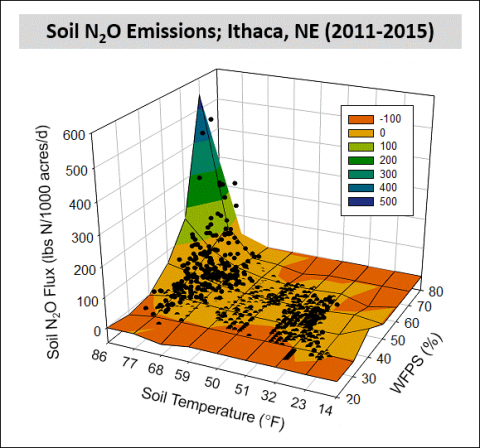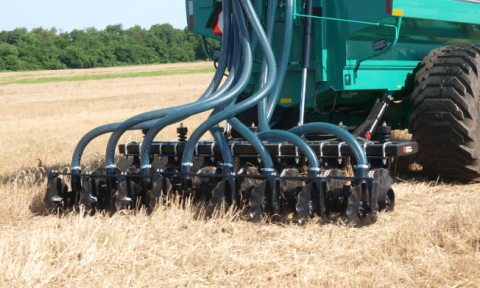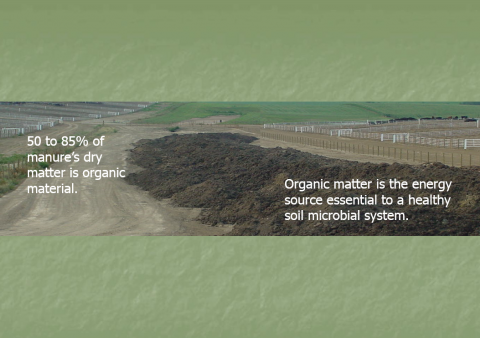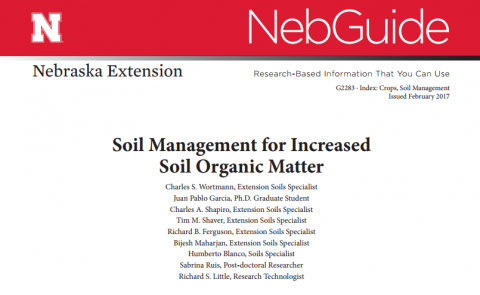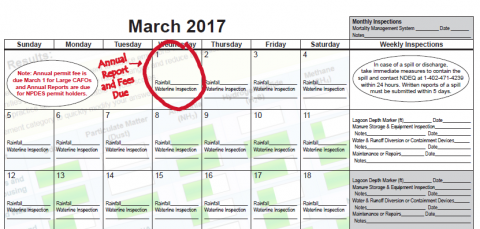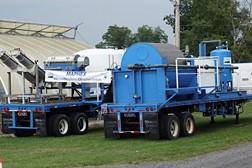What’s New with K Fertilizer Use?
April 5, 2018
Three studies with a total of 50 trials applying K at various rates to corn verified that the likelihood of a profitable response is very low if the soil test level is above 125 ppm.
Managing Nitrogen to Reduce Losses as Nitrous Oxide
September 18, 2017
Nitrogen is a key factor in farm management and economics. One of the most expensive inputs for corn production, it can be easily lost to the environment. One avenue for losing N, as nitrous oxide, has an impact on our climate as a greenhouse gas. Successful strategies for reducing N losses, especially as nitrous oxide, benefit both farmers and the environment.
Is Manure a Fertility Option for Wheat?
July 18, 2017
Interested in applying manure to wheat to meet phosphorus and nitrogen needs? This article outlines factors to consider and recommendations for manure and soil sampling, application method, and timing of application to get the highest return from your manure.
Recommended Resource: Nitrogen Extenders and Additives for Field Crops
March 9, 2017
A recently revised publication, Nitrogen Extenders and Additives for Field Crops, discusses their attributes, performance, and crop yield response in various trials, and reviews related research findings from land grant universities in the North Central Region.
Finding Win-Wins for Manure: Maximizing Soil Quality Benefits
March 6, 2017
Manure offers crop production wins by providing valuable nutrients and helping build soil organic matter and an active soil microbial community. Soils with organic matter levels on the low end of their typical range can benefit the most from manure applications that do not exceed the crop’s nitrogen requirements. Organic matter also improves soil aggregates which in turn helps increase infiltration of precipitation and irrigation water, improves water-holding capacity of the soil, and reduces runoff and erosion. Soils with these characteristics experience greater drought tolerance.
New NebGuide: Soil Management for Increased Soil Organic Matter
March 2, 2017
A new Nebraska Extension NebGuide discusses the steady state level of soil organic matter and how some management practices can reduce soil organic matter loss or increase soil organic matter.
2017 Nutrient Management Record Keeping Calendars
January 10, 2017
The 2017 Nutrient Management Record Keeping Calendars are now available from Nebraska Extension. Tracking manure application rates, part of the calendar’s record keeping tools, is important for getting the maximum crop nutrient value from manure and documenting one’s environmental stewardship. This easy-to-use record-keeping calendar tracks manure-related records for livestock and cropping operations.
